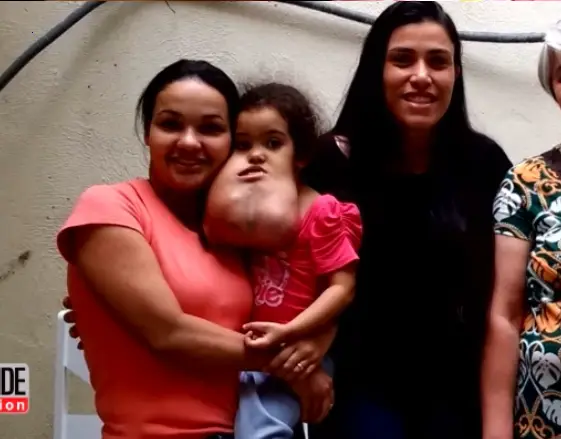My 3-year-old son was crying because he didn’t want to wear a sweater to preschool. Cradling him in my arms, I too shed tears. But my waterworks weren’t fueled by his weather-inappropriate outfit choice—or, really, anything in particular. I was simply overcome with the rollercoaster of emotions that swept in days after the birth of my second son.
It’s no exaggeration to say that welcoming a new baby can completely upheave your ability to regulate your mood. The good news? Experiencing “all the feels” individually—or even at the same time—is not only common, it’s to be expected. Below, experts explain why moms tend to experience a tidal wave of emotions after birth, and identify a range of postpartum feelings you can likely expect to experience.
Why the Postpartum Period Is So Emotionally Turbulent
Renée Goff, PsyD, PMH-C, a clinical psychologist who recently had her third baby, knows the challenges of the first few weeks both through her practice and firsthand experience. “I’m happily discussing my new baby with someone, and then immediately bursting into tears when they ask about her delivery because it didn’t go as planned,” she says. “Then, I cry harder because I’m embarrassed I’m even crying in the first place.

A typical day, emotion-wise, feels like a jumbled mess. It’s never just one feeling at one time.” She wakes up exhausted because the baby falls asleep just 30 minutes before her other two kids are up for school. Throughout the day, moments of complete joy and bliss are intertwined with irritability and sadness. By nighttime, feelings of loneliness, anxiety and even relief may set in.
This mix of all-over-the-place emotions is far from abnormal. But moms may find it hard to articulate it, or they worry there’s something wrong with them. “Many [patients] are often apprehensive to tell me the extent of what they’re experiencing,” Goff says. “They’re fearful to be the only ones experiencing these feelings, that they’ll be judged, and that they should have it all together. It’s something we, as society, don’t talk about enough and tend to stigmatize.”
But the idea that postpartum mood swings and emotional changes are something new moms can control is not only unfair, it’s also inaccurate. The endocrine system, which works as a hormone-managing network, works overtime during pregnancy and postpartum. Any disturbance has a domino effect on a mom’s mental state, according to a 2019 study. Here’s how it works: A spike in endorphins during labor can give Mom a jolt of jubilance (think of it as nature’s way of coping with the birth itself); oxytocin sweeps in next to strengthen the mom-baby bond. But then a sharp drop in progesterone after birth can be responsible for the dark cloud that approaches unannounced and is linked to baby blues and postpartum depression (PPD). Since the ovaries won’t start producing more progesterone until the first menstrual cycle, this emotional imbalance is very much real.
“The brain may not be the first body part that springs to mind when you think about the process of having a baby, but in a sense it’s the most important organ of childbirth, growing and changing in ways that support this brand new relationship with a tiny stranger,” says Abigail Tucker, author of Mom Genes: Inside the New Science of Our Ancient Maternal Instinct. “The hormones of pregnancy kick off revisions to your brain, rewiring key areas, which is why scientists increasingly see pregnancy and new motherhood as a distinct period of adult development, a phase of personal growth and emotional upheaval a little like adolescence.”

Think of it this way: You may not be as fragile as your newborn, but that doesn’t mean you don’t need lots of TLC too. “[As moms], we too are in a sense reborn alongside our babies and, like them, need plenty of time and space to learn and grow,” adds Tucker.
For many new moms, the mixed bag of feelings can start a couple of days after delivery and last for several weeks (in some cases, especially if untreated, postpartum depression can last months). While hormones and lack of sleep and circumstances all contribute to this emotional hodgepodge, it’s different for every woman. The ease of transition into motherhood is determined by a myriad of hidden factors, including age, economic circumstances, baby’s temperament, past experience of stress and trauma and her present-day support network.
Chances are, you’ll feel some pretty amazing highs and some fairly rough lows during the days and weeks following baby’s birth. Ready to get a handle on your many moods? Here are some common postpartum feelings you’ll probably experience to some degree.
1. Elation
New moms are flooded with dopamine and oxytocin, which are feel-good neurotransmitters. This persistent activation helps you bond with baby and gives you that want-to-cuddle-all-the-time feeling. What’s more, the fact that you just grew and birthed a human might have you feeling like something of a superhero. Enjoy these moments of unfiltered happiness—you deserve it. Just be aware that any emotion in excess can have negative effects. If periodic elation turns to postpartum euphoria (sometimes called the “baby pinks”), there are potential consequences. Yes, you can have too much of a good thing.
2. Unrest
Immediately after delivery, estrogen levels plummet 100- to 1,000-fold during the first three to four days postpartum. Simultaneously, monoamine oxidase A (MAO-A), an enzyme that helps break down “feel-good” chemicals in the brain (like serotonin and dopamine) increases, according to research. This new cocktail may cause feelings of agitation, uneasiness or dissatisfaction.

Circumstances can also contribute to this “blah” feeling. For example, you may not feel satisfied with the way your childbirth went. Or you might be frustrated if baby is having a hard time getting a good latch and breastfeeding isn’t going as planned. And, of course, having a practically nocturnal newborn can turn your world emotionally upside down. Suffice to say that some degree of unrest or impatience is par for the course.
3. Empathy
Spending time with baby has this welcome side effect. New moms’ brains show structural changes in areas related to social processing. “It turns out that oxytocin, which jumpstarts uterine contractions and milk letdown, is likewise at work in our brains, paving the way for social bonding and empathy,” Tucker says.
4. Aggression
Turns out, oxytocin has a dark side. “It isn’t always such a cozy neurochemical,” Tucker says. The scientific term for the “mama bear” phenomenon is actually lactation aggression, which is a mechanism to relieve stress. Add exhaustion to the mix and you’ve got a perfect recipe for lashing out at your partner (or anyone in your way).
5. Alertness
Attention to detail may be an evolutionary remnant dating back to when new moms had to keep their newborns safe from predators. Nowadays, this can be translated to feeling like you’re on alert to meet child’s needs. “Gushes of potent neurochemicals like dopamine and oxytocin incentivize new moms to stay up all night soothing newborns,” Tucker says. In her book, Tucker explain that you become hypersensitive to your baby’s cry 48-hours post birth, and the amygdala (a part of your brain that plays a key role in emotions and behavior) responds with something similar to a reward. It may sound contradictory, but it could be your body’s way to build up persistent care. This could also explain why you jump up as soon as you hear your baby’s hunger cries—while your partner may stay snoozing.
6. Depression
About one in eight women who give birth each year develop postpartum depression symptoms, according to the Centers for Disease Control and Prevention (CDC). “If you experience emotions such as sadness, irritability, and anxiety within the first two weeks postpartum, it’s likely the baby blues,” Goff says. “However, if these emotions extend past two weeks and are negatively impacting you and your relationship with your baby (or others), then you should be assessed for a perinatal mood and anxiety disorder [PMAD].” (Postpartum depression falls under PMADs as depression is a type of mood disorder.)
7. Disappointment
Feelings of regret and disappointment may creep up when you least expect them to. In her practice, Rachel Miller, MD, an ob-gyn in the Charlotte, North Carolina area, has noticed that postpartum disappointment can hit especially hard. “A lot of women want to live out what they envisioned [for labor and delivery],” she says. “Social media plays a role in this. When there are posts about perceptively perfect deliveries, it’s easy to have envy.”








Leave a Comment